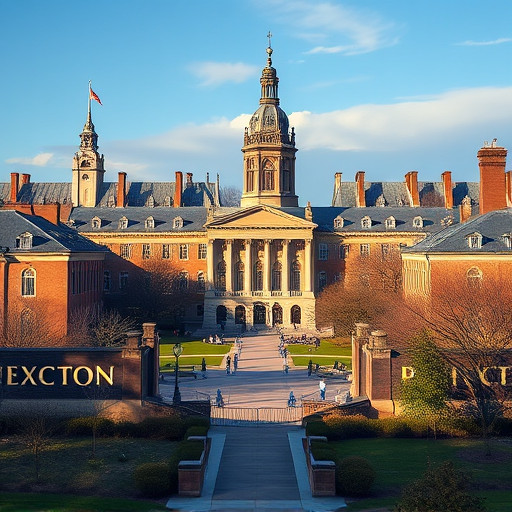Exploring Harvard University – Researching the History and Academic Programs at Harvard

Harvard University: Researching the history and academic programs at Harvard has become a significant pursuit for students, educators, and researchers alike. This iconic institution stands as a beacon of higher education, influencing countless academic disciplines and shaping future leaders across the globe. In this article, we will delve into the rich tapestry of Harvard’s history and its wide-ranging academic offerings.
Harvard University: Researching the history and academic programs at Harvard
As one takes a closer look at Harvard University, it quickly becomes apparent that its historical significance is matched only by its academic prowess. Established in 1636, Harvard is not just an institution; it’s a cultural icon that embodies the spirit of American education. Over nearly four centuries, it has evolved from a modest college to a sprawling university with worldwide acclaim.
Understanding Harvard University: Researching the history and academic programs at Harvard involves examining how its educational philosophies have shaped modern academia. This focus on research and scholarship has made Harvard a leader in innovation and inquiry, fostering an environment where curiosity thrives.
The Historical Context of Harvard
Harvard’s establishment was rooted in the Puritan work ethic, which emphasized the importance of education for preparing ministers. The original mission of the college was to train clergy, but as the years progressed, its goals expanded significantly. By the late 19th century, Harvard had begun to embrace a more secular approach, emphasizing research and the liberal arts.
The evolution of Harvard’s curriculum reflects broader changes within American society and higher education. As new disciplines emerged, Harvard adapted its programs, responding to the intellectual currents of the time. The school’s commitment to excellence became evident through various reforms and expansions in academics, culminating in the establishment of graduate schools, including law, medicine, and business.
The Architectural Marvels of Harvard
Another fascinating aspect of the university is its architecture. The campus features a blend of colonial styles, Gothic revival buildings, and contemporary designs. Iconic structures such as Harvard Yard and the Widener Library evoke a sense of history while housing cutting-edge research facilities. Walking through the campus feels like traversing through different eras of architectural brilliance.
These buildings are not merely functional; they are imbued with stories of generations who have walked their halls. They house projects, discussions, and innovations that have influenced numerous fields. Each structure contributes to a narrative that underscores Harvard’s legacy as a place where history meets modernity.
The Global Impact of Harvard’s Research
Harvard is synonymous with groundbreaking research, often leading the charge in various fields, from medicine to economics. The university is home to countless Nobel laureates whose discoveries have changed the world. Its extensive research libraries and resources enable scholars to pursue inquiries that push boundaries, making it a global hub for innovation.
Moreover, the interdisciplinary approach promoted at Harvard fosters collaboration among varied fields. This cross-pollination of ideas has led to revolutionary advancements, evident in projects that address complex global issues such as climate change and health disparities.
The most prestigious university in the world
When discussing the most prestigious university in the world, Harvard consistently ranks at the top. But what fuels this reputation? It’s not solely the achievements of its alumni or faculty; it’s also about the culture that permeates throughout the institution—an ethos grounded in excellence, integrity, and social responsibility.
This prestigious standing attracts a diverse and talented student body, creating a melting pot of ideas and perspectives. As students from all corners of the globe converge at Harvard, they contribute to an academic community characterized by rigorous debate and mutual respect.
The Admissions Process: A Gateway to Prestige
Harvard’s admissions process is famously selective, reinforcing its status as the most sought-after academic institution. Applicants must present exceptional academic records combined with extracurricular engagement and personal narratives that reflect resilience, creativity, and leadership potential.
This stringent selection process ensures that those who enter the hallowed halls of Harvard are not only intellectually gifted but also possess a breadth of experiences that enhance the community. The diversity among students enriches classroom discussions, allowing for a more comprehensive exploration of topics.
The Alumni Network: A Powerful Asset
The strength of Harvard’s alumni network cannot be understated. Graduates emerge from their studies equipped with not only knowledge but also connections that can propel their careers. Whether they pursue paths in business, government, science, or the arts, Harvard alumni often find themselves in positions of influence.
This network extends beyond career advancement; it creates a sense of belonging and shared purpose among graduates. Lifelong friendships and collaborations fostered during their time at Harvard can lead to transformative initiatives that continue to impact society long after leaving campus.
The Commitment to Social Responsibility
Harvard has increasingly focused on instilling values of social responsibility among its students. Through programs centered around public service and civic engagement, students are encouraged to apply their knowledge towards addressing societal challenges.
This commitment to societal impact is reflected in various initiatives, including the Harvard Public Service Network, which connects students with opportunities to make a difference. As graduates enter the workforce, they carry with them a deep understanding of their potential to enact positive change, positioning Harvard not just as an educational institution but as a catalyst for global progress.
FAQs
What is the history of Harvard University?
Harvard University was established in 1636, initially as a college to train clergy. Over the centuries, it evolved into a prestigious research university, expanding its curriculum and establishing graduate programs that have shaped numerous fields of study.
Why is Harvard considered the most prestigious university worldwide?
Harvard’s reputation stems from its rigorous academic programs, distinguished faculty, groundbreaking research, and influential alumni. Its competitive admissions process and commitment to excellence further enhance its standing as a premier institution.
What academic programs does Harvard offer?
Harvard offers a diverse array of academic programs across various disciplines, including humanities, sciences, engineering, law, business, and healthcare. Its interdisciplinary approach encourages collaboration between fields and innovative research.
How does Harvard’s alumni network benefit graduates?
Harvard’s alumni network provides invaluable connections and support, facilitating career opportunities and collaborations. The strong ties formed during studies often translate into lifelong relationships that benefit both personal and professional endeavors.
What role does social responsibility play in Harvard’s education?
Harvard emphasizes social responsibility by encouraging students to engage in public service and civic activities. Programs promoting social impact help cultivate a sense of duty among students to contribute positively to society.
Conclusion
In conclusion, Harvard University: Researching the history and academic programs at Harvard reveals an institution steeped in tradition, yet unwavering in its pursuit of innovation. As the most prestigious university in the world, Harvard continues to shape the future of education, research, and social responsibility. Its storied past, coupled with an ever-evolving academic landscape, ensures that it remains a vital player in the discourse of global change. For anyone considering higher education, Harvard represents not only a destination but a journey toward intellectual fulfillment and societal contribution.



Leave a Comment